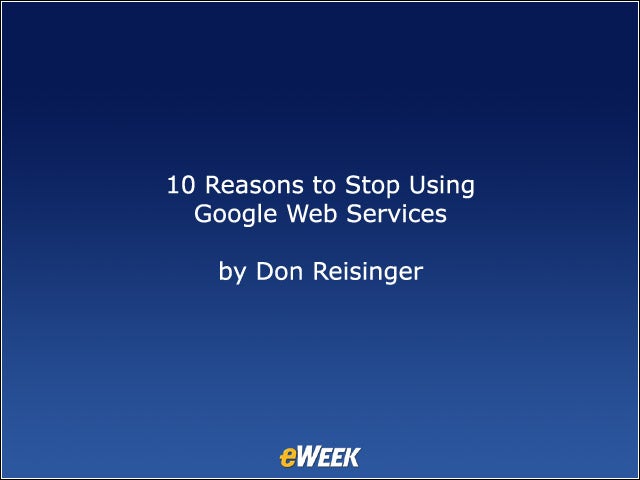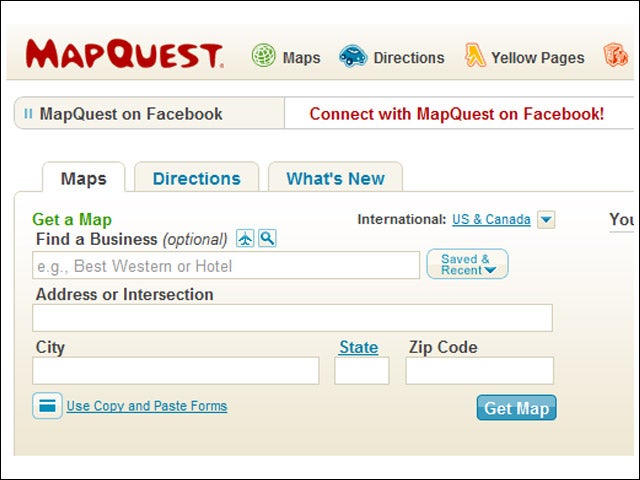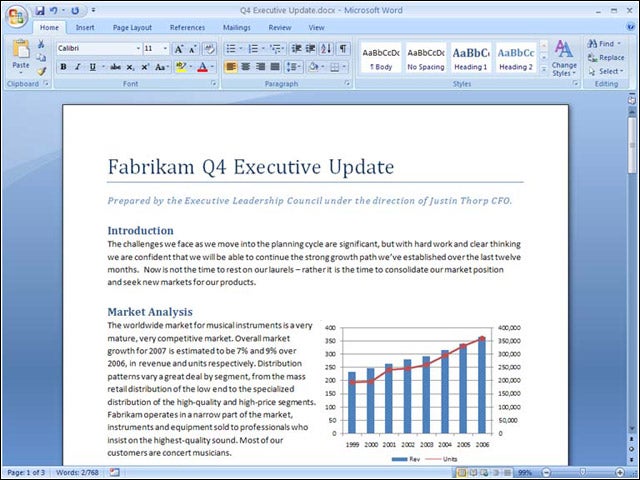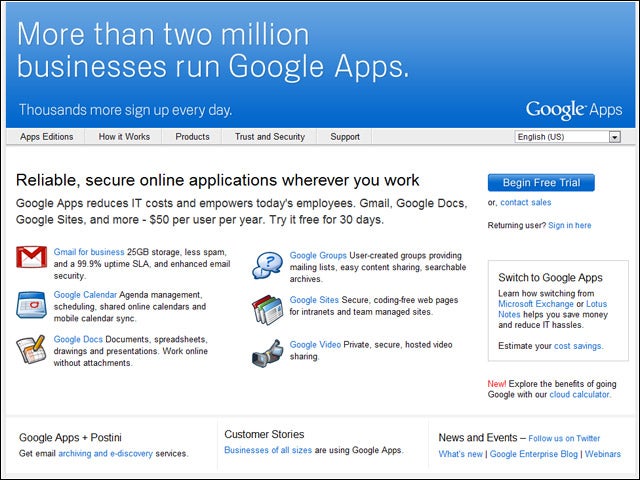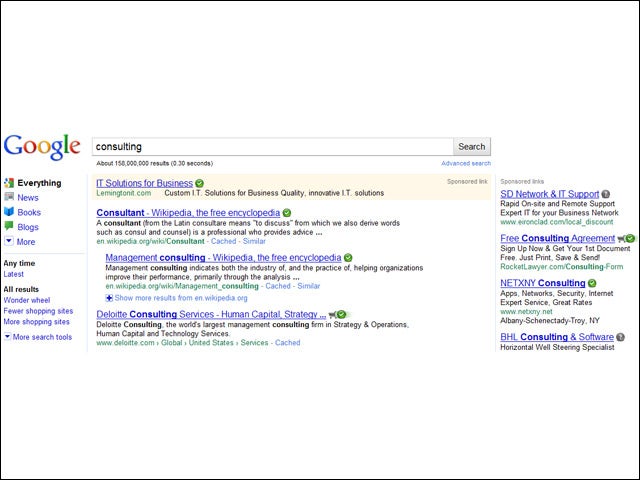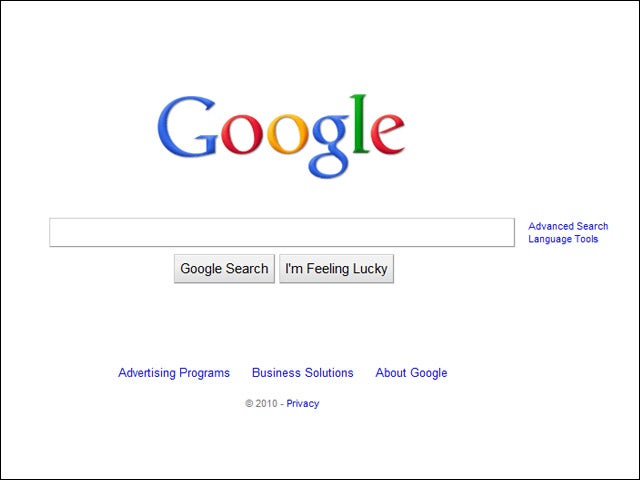eWEEK content and product recommendations are editorially independent. We may make money when you click on links to our partners. Learn More.
2Privacy Issues Galore
One of the main reasons why users might want to opt to ditch Google’s Web services in favor of alternatives is the company’s recent privacy troubles. Not only did Google face privacy concerns when it allowed Buzz users’ most-contacted acquaintances to be viewable by anyone else, it also collected sensitive information as it roamed through towns taking pictures of different areas with its Street View service. There is even some concern over Google’s decision to target ads in Gmail based on the content in user e-mails. Google has said time and again that its Gmail tool maintains anonymity at all times, but some folks might worry about that and decide to go elsewhere.
3Bing Works Well
Microsoft’s Bing search engine has a fraction of the market share that Google Search enjoys. But what it lacks in users, it makes up for with several outstanding features that make the search engine a viable alternative to Google Search. A key component in that is the company’s integration of social-networking activity. Although Google offers updates from Facebook and Twitter, Bing does a better job of it by offering all status updates in Facebook, rather than those from Groups. Plus, its Twitter integration works quite well. For a different search experience, Bing is the best option.
4MapQuest Is a Nice Alternative
Google Maps is often times called the best mapping solution on the Web. And although it does a great job, there are nice alternatives that are worth considering. In fact, MapQuest, an old-time veteran on the Web, does a fine job of mapping routes for users, and showing extras, like gas prices, local hotspots and more right on the map. The company doesn’t have a Street View-like experience for users to see what different locations look like, but those that want to find points of interest around a location will be able to do so without any trouble on MapQuest. Simply put, MapQuest could be a viable alternative to Google Maps.
5Office, Anyone?
Google Docs is undoubtedly a nice service that allows users to have Office-like functionality on the Web. But it doesn’t compare to Microsoft’s productivity suite on any level. And the chances of that changing anytime soon are slim. Because Google Docs is on the Web, it can only harness a finite amount of power. Thanks to its offline functionality, Office doesn’t suffer from any of those troubles, and thus users can do more with Microsoft’s solution than Google Docs. That’s especially true when one compares Excel to Google’s Spreadsheets application. Google Docs is nice and it’s free, but it’s not Office.
6The Enterprise Isnt There
A key issue for Google is that the company has done little to attract enterprise customers. Although it currently offers Google Business Apps, which includes Gmail and Google Docs to name a few, there isn’t enough there for the average company to want to switch from current solutions. And considering the company has yet to offer enterprise-focused Web apps, like a database solution, it’s hard to see why most organizations would be willing to work with Google’s Web services.
7Zoho Does More with Less
Those looking for Web-based office solutions will find more to like from Zoho. Although the company doesn’t have the same market appeal as Google, it makes up for it with a growing slate of services designed specifically for those that want to do more online than what Google currently offers. Aside from a full office-productivity suite, Zoho includes a free online-meeting solution, remote support and a human-resources tool for companies to manage their organizations. It also has a Web-based e-mail service that works quite well. Why use Google’s Web services if Zoho’s can do so much more?
8The Power Problem
One of the top reasons why some folks would want to ditch Google’s Web services in favor of alternatives is to cut down on the amount of power the company wields on the Internet. For years, customers griped that Microsoft was too big and powerful, causing other companies and even customers to play by the software giant’s rules. Nowadays, Microsoft has lost its position as the dominant force in tech and Google is quickly taking over. If consumers and enterprise customers don’t want to see history repeat itself, opting for Google alternatives to stymie the search company’s growth might be a good idea.
9Issues with Google Ads
Those that have a problem with Google’s ad platform will definitely want to stay away from the company’s Web services. Google has done a genius job of integrating its ad platform into practically every service that it offers. Not only does it make an important presence in search, but its ads also crop up in Gmail and YouTube, to name a few. If ads are troublesome for users, going elsewhere is a good idea.
10Simplicity Trumps Design
There are two types of Web users: those that desire a well-designed site above all else, and those that want simplicity over a nice design. For the most part, Google caters to those seeking simplicity. Until recently, the Web company stuck with its familiar, simple Search design. But due to the fact that Bing was growing, the search giant improved its results page, making them more navigable for users. But the same can’t be said for the rest of its services. They’re all designed to be simple with little regard given to aesthetics. Those that want a nice, Web 2.0-esque design will need to go elsewhere to find it.
11Small Startup Support
Supporting smaller startups is a fine reason for moving away from Google’s Web services. When Google first started, it was a small, inconsequential company that was run by a couple of men that had a good idea. There are several such businesses on the Web right now. But because Google has become such a powerhouse, they don’t get the kind of attention they otherwise should. Those looking to abandon Google’s Web services might find something unique and useful in a small startup.
